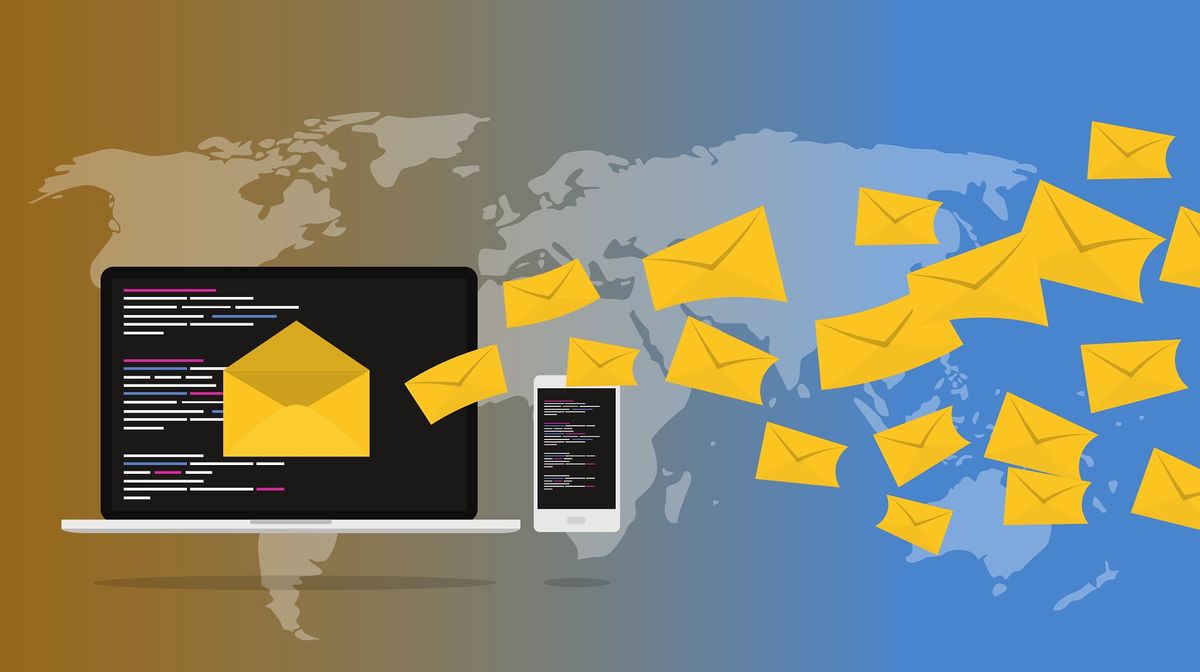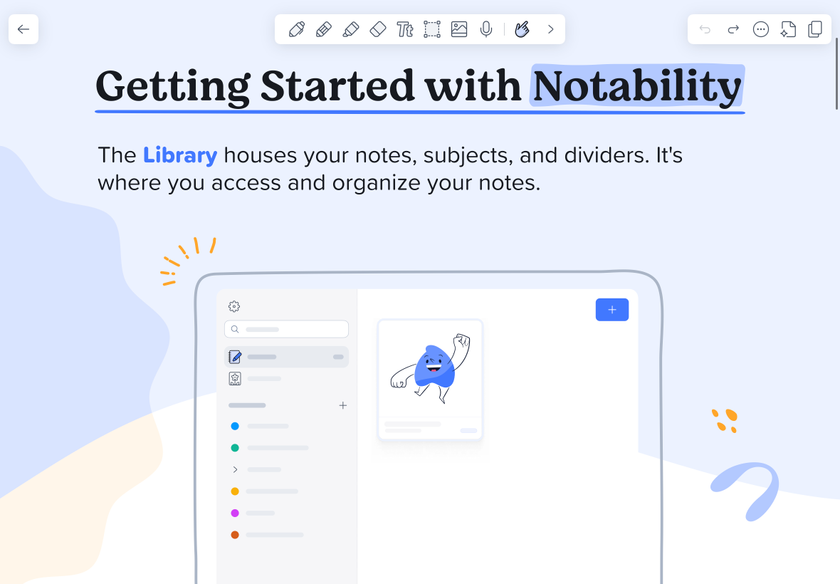Secure email and email encrypted services: What are the differences?
These aren't the same things. Here are the differences

In today's digital landscape, where email remains a cornerstone of communication, safeguarding sensitive information is paramount. With growing concerns about privacy breaches and unauthorized access, understanding the nuances between secure email platforms and email encryption services is crucial. While both aim to protect your communications, they differ significantly in their approach and scope.
Secure email platforms provide a holistic security framework, prioritizing both content and metadata protection. These services are built with privacy as a core tenet, often employing end-to-end encryption to ensure only the intended recipient can decipher the message. They also implement robust privacy policies, refusing to track user data and often residing in jurisdictions with strong privacy laws to shield user information from government overreach. Think of it like sending a letter in a secure, tamper-proof envelope, delivered through a private courier service that prioritizes confidentiality.
Conversely, email encryption services act as add-ons to existing email accounts, focusing primarily on encrypting the message content itself. They often integrate with popular email providers, utilizing protocols like PGP or S/MIME to render the email's body and attachments unreadable without the decryption key. However, it's important to note that these services may not necessarily protect metadata, which can still reveal information about the sender, recipient, and timestamps. Imagine sending a regular letter with its contents translated into a secret code that only the recipient can decipher.
The key difference lies in the breadth of security offered. Secure email platforms offer a comprehensive, privacy-centric environment, ideal for individuals and industries handling highly sensitive information and requiring maximum protection against surveillance and data breaches. On the other hand, email encryption services provide a more targeted approach, adding a layer of security to existing email accounts without requiring a complete platform switch. This is suitable for users who prioritize content confidentiality but are less concerned about metadata protection.

Secure email platforms
Secure email platforms offer a comprehensive solution beyond simple content encryption to safeguard every aspect of your email experience. These platforms prioritize privacy and security by design, ensuring that your communications remain confidential and accessible only to you and your intended recipients.
Imagine a fortress protecting your emails. Secure email platforms act as this fortress, employing robust encryption as a foundational element. This means that your emails are transformed into unreadable ciphertext during transmission and storage, rendering them inaccessible to prying eyes. Only the intended recipient, possessing the unique decryption key, can unlock and read the message.
ProtonMail, a leading secure email provider, exemplifies this approach. Based in Switzerland and operating under stringent privacy laws, ProtonMail utilizes end-to-end encryption and open-source architecture, allowing for independent verification of its security measures. This commitment to transparency and user privacy has made it a popular choice for individuals and businesses alike.
Are you a pro? Subscribe to our newsletter
Sign up to the TechRadar Pro newsletter to get all the top news, opinion, features and guidance your business needs to succeed!
Similarly, Tutanota prioritizes security and user experience. With its intuitive interface and end-to-end encryption, Tutanota ensures the confidentiality of both email content and user contacts. By focusing on ease of use without compromising security, Tutanota makes secure email accessible to a wider audience.
These platforms are particularly crucial in scenarios where confidentiality is non-negotiable. Business communications involving sensitive financial data, journalistic correspondence protecting sources, and personal emails containing private information all benefit from the robust security offered by these platforms. They provide peace of mind, ensuring that your digital correspondence remains shielded from unauthorized access and prying eyes.
In essence, secure email platforms are more than just email providers; they are digital fortresses safeguarding your privacy and ensuring that your sensitive information remains confidential in an increasingly interconnected world.
It's crucial to evaluate key factors before choosing a secure email platform:
1. Encryption Standards
Choose email platforms that offer end-to-end encryption (E2EE). This ensures emails are encrypted from sending to receiving. Look for strong protocols like RSA, AES, or TLS as your first line of defense against unauthorized access.
2. Privacy Policies
Understand the platform’s privacy policy. Select providers that do not mine user data for ads and refrain from sharing information with third parties without consent. Transparency indicates trustworthiness.
3. User Authentication
Secure platforms should have strong authentication options like two-factor authentication (2FA) or multi-factor authentication (MFA). These add extra security, reducing the risk of account breaches.
4. Ease of Use
A secure email platform should have an intuitive interface that simplifies emailing. It must allow for easy setup and seamless integration with existing email clients.
5. Compatibility
Ensure the platform works on various operating systems and devices, including smartphones and tablets, so you can securely access your email anytime, anywhere.
6. Compliance with Regulations
For businesses, compliance with regulations like GDPR, HIPAA, or FERPA is essential. Ensure the platform meets the legal requirements relevant to your industry.
7. Features and Functionality
Consider additional features like email self-destruction, the ability to revoke sent emails, and digital signatures to enhance your email security.
8. Provider's Reputation
Research the provider's reliability, customer support, and security history. A strong track record indicates a trustworthy platform.
9. Customer Support
Quality customer support is crucial, especially during data breaches. Look for platforms that offer responsive assistance through various channels.
10. Pricing Structure
Evaluate the pricing. Free options may have limitations, while premium services often provide better security. Ensure the cost aligns with the value offered.
By prioritizing these aspects, you can choose a secure email platform that safeguards your data and meets your communication needs.

Email encryption services
Email remains a cornerstone of modern communication, enabling us to connect with others and conduct business with ease. However, this convenience comes at a price. Sensitive information transmitted via email can be exposed to interception and unauthorized access, jeopardizing privacy and security. Email encryption services offer a vital solution, acting as a digital shield for your messages and ensuring confidentiality.
Imagine sending a letter in a secure, tamper-proof envelope. Email encryption essentially does the same for your digital correspondence. These services utilize sophisticated algorithms to scramble the content of your emails, rendering them unreadable to anyone lacking the proper decryption key. Even if a message is intercepted during transmission, its contents remain protected, appearing as unintelligible gibberish to unauthorized individuals. This process relies on robust encryption protocols like PGP and S/MIME, which are widely recognized for their security.
The flexibility of email encryption services is a key advantage. Standalone applications can integrate with your existing email provider, encrypting messages before they're sent. Alternatively, many secure email platforms offer built-in encryption as a core feature. This allows you to enhance the security of your current email accounts, such as Gmail or Outlook, without the need to migrate to a new platform.
The benefits of email encryption are numerous. It safeguards confidential data like financial records, personal details, and trade secrets, ensuring that only authorized individuals can access this sensitive information. By preventing unauthorized access to personal communications, email encryption also protects privacy and allows individuals to communicate freely without fear of their messages being intercepted. Furthermore, email encryption helps organizations comply with data protection regulations like HIPAA and GDPR, minimizing the risk of legal issues and financial penalties. Finally, utilizing encryption demonstrates a commitment to security and confidentiality, building trust with clients and partners who can be confident that their sensitive information is handled with care.
Examples of Email encryption services:
- ProtonMail Bridge: While ProtonMail itself is a secure email platform, it offers the ProtonMail Bridge feature that allows users to integrate ProtonMail’s robust encryption capabilities with email clients like Microsoft Outlook, Mozilla Thunderbird, and Apple Mail. This service encrypts emails end-to-end, ensuring they can only be decrypted by the intended recipient.
- Mailvelope: Mailvelope is a browser extension that enables end-to-end encryption for webmail services, including Gmail, Yahoo Mail, and Outlook.com. It utilizes OpenPGP encryption, which is a widely respected standard, to secure emails. Mailvelope is designed to be user-friendly, allowing users without extensive knowledge of encryption to easily send and receive encrypted emails.
- Virtru: Virtru offers email encryption solutions tailored for individuals and businesses, providing control over sent emails, such as the ability to revoke emails, set expiration dates, and implement read receipts. It works across various platforms, ensuring that sensitive information remains protected regardless of the email service used.
- Tutanota: Although primarily a secure email provider, Tutanota offers an encryption service for its users, encrypting not just the content but also the subject, attachments, and even the recipient list of emails. It’s a fully integrated solution, meaning you won't need to install additional software or extensions.
Key factors to consider when choosing a email encryption service:
In today’s digital landscape, protecting sensitive information via email is crucial. Here are key factors to consider when selecting an email encryption service:
1. Type of Encryption
Understand whether the service uses symmetric (same key for encrypting and decrypting) or asymmetric encryption (two keys). Asymmetric encryption, like PGP, is generally more secure.
2. Compliance and Standards
Choose a service that complies with regulations such as GDPR or HIPAA, especially if handling sensitive data.
3. Integration and Compatibility
Ensure the service seamlessly integrates with your existing email setup and supports multiple platforms and devices.
4. User Authentication and Access Control
Look for strong authentication options, including two-factor authentication, and control over who can access your emails.
5. Ease of Use
A user-friendly interface is essential for encouraging proper use. Look for services that allow easy sending and receiving of encrypted emails.
6. Scalability
Select a service that can grow with your business, handling more users and emails without compromising performance.
7. Data Sovereignty
Know where your encrypted emails are stored and the applicable laws that could influence data privacy.
8. Recovery Options
Ensure there are secure methods for recovering encryption keys or data, in case they're lost.
9. Customer Support
Opt for services that provide strong customer support through documentation, direct help, or community forums.
10. Cost
Balance cost against features and the service's reliability. Consider the potential cost of a data breach when evaluating price.
In summary, choosing the right email encryption service requires careful consideration of security, compliance, usability, and cost. A reliable service can significantly enhance your cybersecurity and protect valuable information.
Recognizing the difference between secure email and email encryption services is the first step in tailoring your email security strategy to fit your needs. While secure email refers to a suite of protective measures for your email ecosystem, email encryption services focus squarely on safeguarding the content of your emails. As threats to digital communication evolve, having both a secure system and encrypted content is the best defense against unauthorized access and breaches. Choose wisely, and you’ll ensure that your digital conversations remain private and secure.
Bryan M. Wolfe is a staff writer at TechRadar, iMore, and wherever Future can use him. Though his passion is Apple-based products, he doesn't have a problem using Windows and Android. Bryan's a single father of a 15-year-old daughter and a puppy, Isabelle. Thanks for reading!













